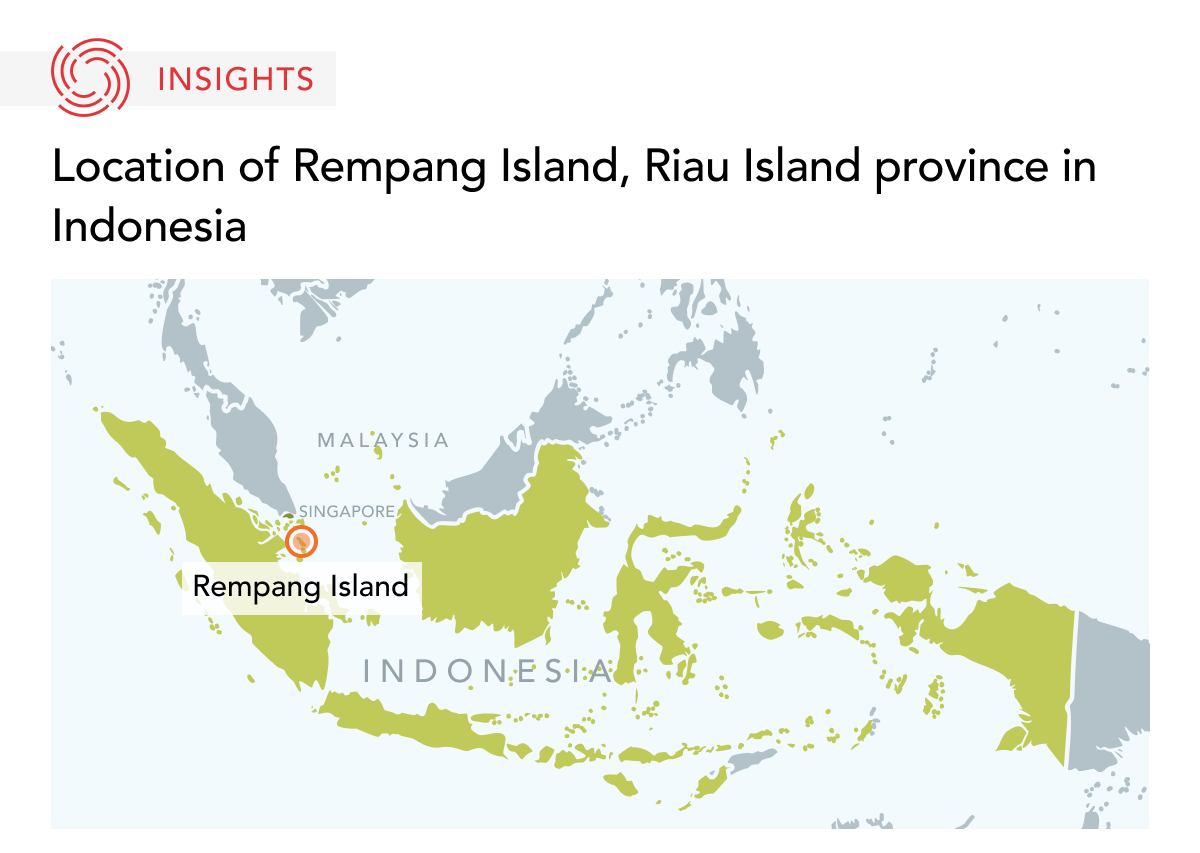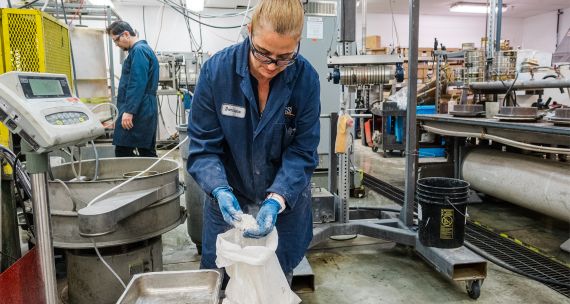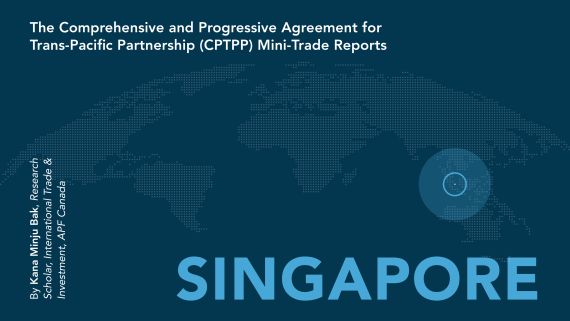The Takeaway
Violent protests have preceded the anticipated September 28 relocation of around 7,500 residents from Rempang Island, Indonesia. Once residents are evicted, construction will begin on an industrial, commercial, and tourism park called Rempang Eco City, which will house a quartz sand-processing plant in partnership with China-based Xinyi Glass, one of the world’s largest float glass and automotive glass producers. Critics accuse the Indonesian government of being heavy-handed in quelling the protests and prioritizing “big capital” over people’s welfare. The government says the relocations are necessary to proceed with construction and has offered relocation packages to those impacted.

In Brief
-
Plans for the Rempang industrial, commercial, and tourism park — located about 58 kilometres from Singapore — have been on hold since 2002. However, in 2023, the Indonesian central government designated it a "national strategic project." This enabled the central government to take control of the project, expediting progress.
-
The megaproject’s possible benefits include more than 300,000 new jobs and C$33.8 billion (381 trillion Indonesian rupiah) in investments in the coming decades. The opening of the Xinyi Glass factory moved one step closer to fruition in July after the company signed a memorandum of understanding with the Indonesian government, valued at C$20.9 billion (241 trillion rupiah). According to the Indonesian government, the factory could create up to 35,000 jobs.
-
Rempang Eco City, however, will displace thousands of residents from what they consider their ancestral home. To protest the forced relocation, approximately 1,000 people staged a demonstration on September 11 in front of the offices of Batam Free Trade Zone and Free Port Authority (BP Batam), the government body spearheading the project’s development. Local police used tear gas and rubber bullets against protesters and arrested at least 43 people for their participation. Critics say these tactics amounted to an excessive use of force.
-
One issue fuelling local residents’ frustration is the lack of clarity over land use regulations. Since the early 2000s, residents in the area have claimed customary ownership of the land. The regional government, moreover, allowed them to reside there because of the lack of clarity. However, the central government considers these residents illegal squatters and says their claims to the land do not meet legal standards. In his 2019 re-election campaign, Indonesian President Joko Widodo promised Rempang residents that they would receive legal land ownership certificates, giving them legal title to the land. The evictions directly contradict Widodo’s pledges.
Implications
The central government faces charges of prioritizing investments over people. Widodo backed the Rempang Eco City project as key to growing the local economy and creating employment opportunities for residents. But the Indonesian National Commission on Human Rights and several civil society organizations have criticized not only the government’s handling of the protests, but also its alleged disregard for residents’ cultural heritage. The government’s handling of the Rempang project could be indicative of how it will handle other local disputes over evicting residents in the name of economic progress.
The project could also have serious environmental consequences. The Indonesian Forum for the Environment, an Indonesian environmental NGO, raised concerns that constructing the industrial park and the quartz sand processing plant could lead to excessive water usage and the overexploitation of sand on the island, damaging the local environment. The NGO also drew attention to one case of supposed liquid waste mismanagement reported at another of Xinyi’s sand processing plants — this one in Canada — as an example of possible environmental harms.
What's Next
1. Relocation plans proceed
Residents will be relocated to a soon-to-be-built fishing village on Galang Island, at the southern tip of Rempang Island, by late September. The government is offering compensation of 500 square metres of land, valued at C$10,500 (120 million rupiah), for each family. Jakarta will also provide C$105 (1.2 million rupiah) to help with housing costs while new housing is constructed. In addition, the government is providing fishing boats and equipment, as fishing is a major source of many residents’ livelihoods.
2. Residents’ frustration lingers
Many recipients are dissatisfied with the compensation package, noting that the government's offer does not include title deeds to the land but rather ‘right-to-build' certificates that are valid for only 50 years. Local discontent is thus not likely to subside anytime soon.
• Produced by CAST’s Southeast Asia team: Alberto Iskandar (Analyst) and Saima Islam (Analyst).




